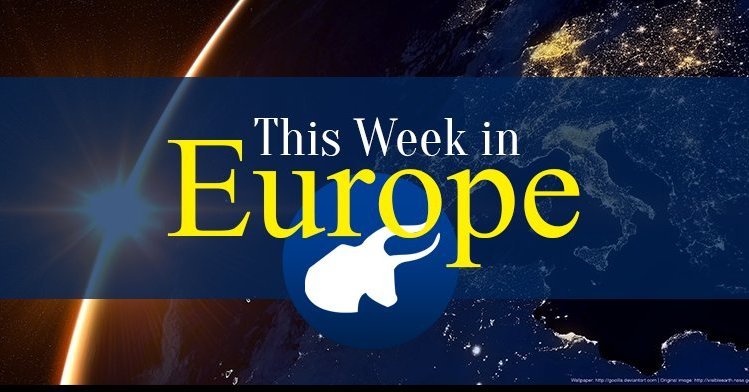Record response to daylight savings consultation
This week, the European Commission announced that it has received more than 4.6 million responses in its consultations regarding the elimination of the time changes in Europe. The summertime directive would eliminate the need to change the clocks twice a year. Running for six weeks between July and August, the consultations included the options of a permanent summer time or a permanent winter time, thus seeking to unify the time regime across the Union in order to not disrupt the single market. One of the main arguments for eliminating the yearly time changes takes into account health issues - the impact of the yearly changes on the human biorhythm may be serious, despite inconclusive results.
Former Slovenian comedian confirmed as PM
On Friday, the parliament of Slovenia approved a minority government led by the center-left leader Marjan Sarec and his party, the LMS. After agreements with the Social Democrats, the Modern Centre Party, the pensioners’ party Desus, the centrist SAB and the Left party, LMS secured 52 seats of the 90-seat parliament. LMS came second in the June election, scoring 12% of the votes, behind the anti-immigration Slovenian Democratic Party, who scored 25%, but was unable to form government. Sarec became famous for his satirical portrayal of the country’s former PM Jansa, mimicking his unsure use of English.
Genoa bridge collapse kills 35 and injures dozens
On Tuesday, a bridge in the Italian city of Genoa collapsed, causing the deaths of 35 people and injuring many more. Set on the A10 motorway, the Morandi bridge fell during a storm on Tuesday morning, prompting Italian authorities and PM Giuseppe Conte himself to rush to the scene. The PM vowed to investigate the cause of the tragedy and to have maintenance checks carried out on all critical infrastructure. In the aftermath of the tragedy, the government has been coming under fire. Transport MInister Danilo Toninelly of the leftwing 5Star movement, however, said that responsibility is to be shared between regional and local authorities and the state-owned highway company. In turn, Matteo Salvini, interior minister and leader of the far-right League, said that maintenance works on Italian infrastructure is often blocked by European spending mechanisms, and that the next budget will have to put “Italians first”, and spending limits afterwards.
Vienna - the world’s most liveable city
This Thursday, the Economist Intelligence Unit’s 2018 “Global Liveability Index” awarded the capital of Austria with the title of the world’s “most liveable city.” Previously held by Melbourne for 7 years straight, the title was grabbed by one of the only two European cities to make it to the top 10 - the other being Copenhagen. The report cited low rates of petty crime, cultural life and increases in stability as the reasons for the decision. Finally, Vienna, Melbourne, Osaka, Calgary and Sydney are the world’s most liveable cities.
Former U.N. Secretary-General Kofi Annan passes away
On Saturday, it was announced that the former United Nations Secretary General Kofi Annan died at the age of 80 after a short illness. Born in Ghana, Annan led the U.N. from 1997 to 2006 and was a staunch defender of human rights and an opponent of the Iraq War, being awarded the Nobel Peace Prize in 2001 alongside the entire U.N. His death prompted messages of remembrance and support from world leaders, including Barack Obama, Theresa May and Emmanuel Macron. Nothing from current U.S. president Donald Trump.
U.K. sees record unemployment & record drop in EU nationals
Between April and June of this year, the United Kingdom has seen its lowest unemployment rate in 43 years, but also a record drop in the number of EU nationals working in the country. The U.K. has not seen a 4% unemployment since 1974, according to the Office for National Statistics, but EU nationals have also dropped by 86,000 - down to 2.28 million people - the largest annual decrease since 1997. At the same time, non-EU nationals with jobs also dropped in number - by 74,000, down to 1.27 million people.
Hungary vs. Gender Studies
On Monday, deputy prime minister Zsolt Semyen of the Hungarian government said that “nobody wants to hire gender graduates, so you do not need to train them”, afterwards revealing that Hungary plans to remove gender studies courses from universities from 2019. Universities were given only 24 hours to comment on the draft law, and critics say that the removal sets a “dangerous precedent” of state intervention. PM Viktor Orban’s chief of staff Gergely Gulyas defended the move, saying that it is one of the first concrete steps in a cultural shift approved by the people of Hungary during the last elections. He cited low enrolment numbers but also said that “the Hungarian government is of the clear view that people are born either men or women”, signaling a conservative opposition to the liberal values popular within humanities. Gender studies courses are taught in the state-run ELTE university and the Central European University, having an enrolment rate of 10, 44 respectively.
Turkey locked in currency crisis
Turkey’s currency, the Lira, has suffered a number of drops in recent weeks and has lost almost 40% of its value against the dollar so far this year. This has already had a negative impact on Turkey’s economy, something compounded by the credit ratings agencies cutting Turkey’s ratings further. Turkey’s trouble is not merely economic but also political. The country is engaged in increasing tit-for-tat tariff hikes with the United States over the fate of an evangelical missionary, Andrew Brunson. Brunson is being held in Turkey on terrorism charges while the United States demands that he be released. President Trump’s support among the American evangelical community is high, making this a key battleground for his base. Erdogan remains defiant and his administration has suggested some policies to help support the troubled currency but markets remain nervous.


Follow the comments: |
|
